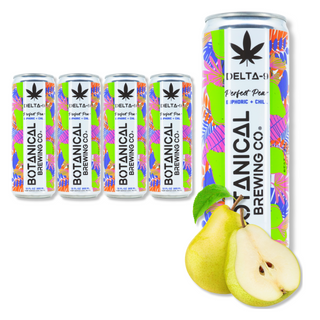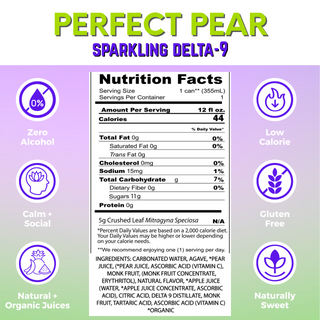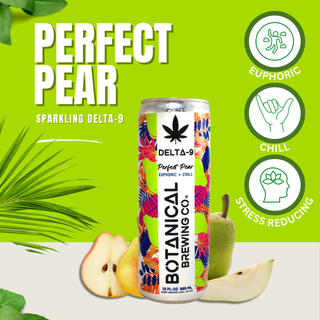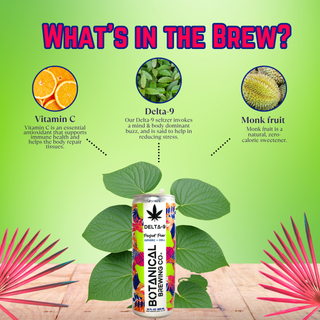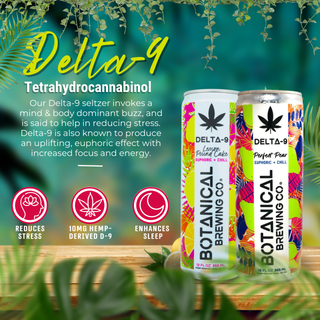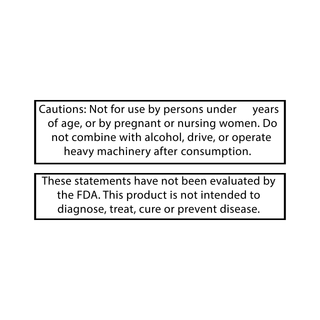A comparison of Delta-8 and Delta-9 THC is important to understand their differences in medical uses, effects, and safety. Delta-9 has a stronger psychoactive effect, while Delta-8 is considered a milder alternative. Being aware of these differences helps users make an informed choice, taking into account their individual needs and legal aspects. The right approach to product selection is key to safe and responsible cannabinoid use.
What is Delta-8 and Delta-9 THC?
Delta-8 and Delta-9 THC are the two main cannabinoids found in the cannabis plant. Both compounds have psychoactive properties, but their effects, how they are produced, and how they interact with the body are different. Delta-9 THC is the most well-known and researched, while Delta-8 is becoming increasingly popular due to its milder effects and lower intensity of psychoactive effects. In this section, we will look at the origin and nature of both compounds, as well as their interaction with the human body.
Description of Delta-8 THC and Delta-9 THC, their origin and nature
Delta-8 THC and Delta-9 THC are two varieties of tetrahydrocannabinol, the main psychoactive component of cannabis. Although both compounds belong to the same family, their molecular structures are slightly different, which leads to different effects on the body.
Delta-9 THC is the most abundant cannabinoid in most cannabis varieties. It is known for its strong psychoactive effects that cause euphoria, altered perception, and various cognitive changes. Delta-9 is synthesized naturally in cannabis plants during the maturation and degradation of other cannabinoids such as THCA.
Delta-8 THC occurs in smaller amounts. It is usually produced synthetically through the isomerization process of Delta-9 or other cannabinoids. It is a more stable form of THC, resulting in less intense psychoactive effects. Delta-8 is in high demand due to its milder effects, which are ideal for those looking for a reduced intensity of Delta-9's effects.
How these two compounds interact with cannabinoid receptors in the body
Both Delta-8 and Delta-9 THC interact with cannabinoid receptors in the human endocannabinoid system. This system is responsible for regulating various bodily functions such as mood, pain, appetite, and memory.
Both compounds bind predominantly to CB1 receptors found in the central nervous system. Delta-9 THC has a stronger affinity for these receptors, which causes more pronounced psychoactive effects, including euphoria, perceptual changes, and cognitive impairment. Interaction with CB1 receptors also causes side effects, such as anxiety, paranoia, or increased heart rate in some users.
Delta-8 THC, while also binding to CB1 receptors, does so with less efficiency, resulting in milder effects. Users of Delta-8 often report an easier perception of euphoria and moderate relaxation without severe cognitive changes or disturbing side effects. Delta-8 also has some interaction with CB2 receptors found primarily in the immune system, which may explain its less psychoactive but more therapeutic effects.
Thus, the difference in interaction with cannabinoid receptors is a key reason for the differences between Delta-8 and Delta-9 in terms of both the intensity of psychoactive effects and therapeutic potential.

Hemp and marijuana: what's the difference?
The difference between hemp and marijuana is key to understanding the origin of Delta-8 and Delta-9 THC. Although both plants come from the same genus, Cannabis, their uses and chemical composition are different, which determines the different properties and legal status of these products.
Hemp is a variety of the Cannabis sativa plant, which is cultivated primarily for industrial purposes. Hemp is used to make fabrics, paper, biofuels, and other industrial products. The main feature of hemp is its low content of tetrahydrocannabinol (THC). According to the laws of the United States and many other countries, hemp has a THC content of less than 0.3%. This makes hemp uncontrollable in terms of psychoactive effects, as this concentration is not enough to cause euphoria or an altered state of consciousness.
Marijuana is a different type of Cannabis sativa or Cannabis indica that contains a much higher level of THC. Marijuana is grown specifically for recreational or medical use due to its psychoactive properties. The level of THC in marijuana can vary, but is typically between 10% and 30%, resulting in strong psychoactive effects such as euphoria, mood and perception alterations.
In the context of Delta-8 and Delta-9 THC, it is important to understand that:
- Delta-9 THC is the main psychoactive component of marijuana and is present in high concentrations in this particular plant.
- Delta-8 THC, while naturally occurring, is found in very small amounts in both marijuana and hemp. Therefore, it is usually synthesized artificially from hemp-derived CBD.
This difference has a significant impact on the legal status of both substances. Delta-8 THC is often made from hemp, which avoids the strict controls that govern marijuana and Delta-9 THC. However, although both compounds come from the same plant genus, they have different legal and chemical properties, which determines their different uses and availability on the market.
How Delta-8 and Delta-9 are obtained: the synthesis process
Delta-8 and Delta-9 THC are two types of tetrahydrocannabinol that have different methods of production. Delta-9 occurs naturally in cannabis in significant amounts, while Delta-8 is formed in very small amounts and is usually synthesized from other cannabinoids such as CBD.
The main methods of obtaining both compounds
Delta-9 THC is usually extracted from the cannabis plant. The most common methods are:
- Supercritical CO2 extraction is a safe and effective way to produce cannabinoids.
- Ethanol extraction - uses ethanol to dissolve and extract THC.
- Pressing - obtaining a concentrate without the use of chemicals.
Delta-8 THC is mostly obtained through the chemical process of CBD isomerization:
- CBD isomerization is the chemical reaction of converting CBD to Delta-8 THC.
- Product purification is the removal of impurities after the reaction.

Natural origin of Delta-9 and synthetic production of Delta-8
Delta-9 THC is formed naturally in cannabis through the process of decarboxylation of THCA when heated. It is obtained naturally by smoking or evaporation of the plant mass.
Delta-8 THC occurs in very small quantities, so it is usually synthesized with CBD, through isomerization. This process makes it possible to produce Delta-8 in commercial quantities for use in products.
Medical use: Delta-8 vs. Delta-9
Delta-8 and Delta-9 THC have similar properties due to their common origin, but their medical uses are slightly different due to the difference in intensity of effects. Both compounds can be useful for alleviating the symptoms of various medical conditions, but each has its own benefits depending on the patient's condition. In this section, we'll compare the medical properties of Delta-8 and Delta-9 and look at what diseases can be treated with these cannabinoids.
Comparing the medical uses of Delta-8 and Delta-9
Delta-8 THC is known for its milder effects, which makes it more acceptable for patients who need treatment but don't want to experience strong psychoactive effects. It has a mild sedative effect and can be used to reduce anxiety and combat nausea. In addition, Delta-8 promotes appetite, which is useful for patients with eating disorders or after chemotherapy.
Delta-9 THC is more potent in terms of psychoactive effects, making it more effective for treating pain, especially chronic pain. It is also used to treat neurological conditions such as multiple sclerosis and epilepsy. Delta-9 provides stronger pain relief but can cause side effects such as anxiety or paranoia.
What conditions and diseases are treated with these cannabinoids
Delta-8 and Delta-9 are used to treat a variety of medical conditions:
- Delta-8 THC:
- Anxiety disorders
- Nausea and vomiting, especially after chemotherapy
- Loss of appetite
- Mild form of pain or inflammation
- Delta-9 THC:
- Chronic pain
- Neurological diseases (epilepsy, multiple sclerosis)
- Severe forms of nausea
- Muscle spasticity
Both cannabinoids have significant medical potential, but the choice between them depends on the patient's specific needs and desired treatment effects.
Effects: Delta-8 vs. Delta-9
Delta-8 and Delta-9 THC have similar psychoactive properties, but differ in the intensity and duration of their effects. Let's look at their main differences in effects on the body and perception.
Comparison of the psychoactive effects of Delta-8 and Delta-9
Delta-9 THC is known for its powerful psychoactive effects that can cause intense euphoria, altered consciousness, and intense emotional states. It interacts with the brain's cannabinoid receptors, leading to dramatic mood swings, stress reduction, and sometimes an increase in anxiety in high doses. Delta-9 can also cause hallucinations and disturbances in the perception of time and space.
Delta-8 THC, although it has similar properties, has a much milder effect. Its effects are less intense and it is less likely to cause anxiety or paranoia. Delta-8 gives a feeling of mild relaxation and mild euphoria, making it more comfortable for daily use or for those looking for a milder effect on the psyche.
Difference in sensations, cognitive and physical effects after using Delta-8 and Delta-9

Delta-9 THC typically causes severe changes in cognitive performance: impaired concentration, short-term memory, and slower thinking. Physical effects can include increased heart rate, dry mouth, and red eyes. Some users also experience intense hunger (“hunger attacks”).
Delta-8 THC has a milder effect on cognitive function, not causing such severe attention and memory impairment. Most users report a clearer consciousness while using Delta-8, allowing them to maintain their ability to perform mentally. The physical effects of Delta-8 are also less intense: it provides a mild relaxation without marked changes in heart rate or blood pressure.
Thus, Delta-9 provides more intense psychoactive and physical changes, while Delta-8 produces more balanced and mild effects.
Legal status of Delta-8 and Delta-9
The legal status of Delta-8 and Delta-9 THC varies considerably both in the United States and internationally. Both compounds are regulated by different laws, depending on concentration and origin.
Overview of the legal status of Delta-8 and Delta-9 in the United States
Delta-9 THC is considered an illegal substance at the federal level under the Controlled Substances Act, as it is listed as a Schedule I controlled substance due to its psychoactive properties. However, many states such as California, Colorado, Oregon, and Washington have legalized Delta-9 for medical and recreational use. At the same time, other states, such as Idaho and Nebraska, maintain a complete ban on the use and sale of products high in Delta-9 THC.
Delta-8 THC has a more complicated legal status. While it is derived from hemp, which was legalized in the United States under the 2018 Farm Bill, some states have restricted or banned its use due to its psychoactive effects similar to Delta-9. For example, Delta-8 is banned in Alaska, Colorado, Delaware, and Idaho, while it remains legal in many other states. It is important to check local laws before using or purchasing Delta-8.
International perspective on legality
Internationally, the legal status of Delta-8 and Delta-9 also varies. Delta-9 THC is banned in many countries, such as the United Kingdom, Germany, and Japan, where its use is controlled by drug laws. However, some countries, like Canada and Uruguay, have legalized marijuana that includes Delta-9 for medical and recreational use.
Delta-8 THC is less well known internationally, and its status in many countries remains uncertain. In countries where cannabis is legal or decriminalized, such as Canada or the Netherlands, Delta-8 is likely to fall under the same laws as Delta-9. However, in many countries, especially those with strict drug laws, its sale and use can be risky.
Consumption and safety: what you need to know
Delta-8 and Delta-9 THC are available in different forms of consumption, each with its own benefits and potential risks. It is important to understand what products are available and what the risks may be when using them.
What are the products for Delta-8 and Delta-9
Products with Delta-8 and Delta-9 THC are offered in a variety of formats, allowing consumers to choose the most convenient way to consume. The main forms include:
- Edibles - gummies, chocolate, candies, which contain a precise dosage. They provide a long-lasting effect, although they start to act more slowly (30 minutes to 2 hours).
- Vape cartridges and oils - inhalation provides a quick onset of action, but you should pay attention to the quality of the cartridges to avoid harmful impurities.
- Cannabis flowers - they can be smoked or used for vaporization. This is a classic method of consumption with a quick effect, but there may be negative effects on the respiratory system.
- Drinks with Delta-8 and Delta-9 THC are a modern and safe way to consume. THC drinks are rapidly gaining popularity due to their convenience and easy dosing. They have a moderate, controlled effect that is ideal for social situations or relaxation.
Main risks and safety of both substances
Delta-8 and Delta-9 THC are generally safe for most users at the right dosage, but they also come with some risks:
- Psychoactive effects - Delta-9 has stronger psychoactive effects that can cause anxiety or paranoia. Delta-8 is less intense, but can still affect cognitive function.
- Risk of addiction - frequent use can lead to tolerance and physical dependence.
- Legal implications - check local laws before use, as both compounds may be illegal in certain regions.

What to choose: Delta-8 or Delta-9?
The choice between Delta-8 and Delta-9 depends on your needs and experience with cannabinoids. Both compounds have their advantages for different situations. Let's take a look at when it's best to use each of them and provide recommendations for beginners and experienced users.
When is it better to use each of the compounds
Delta-8 THC:
- Suitable for those looking for mild, controlled effects without intense changes in consciousness. Delta-8 induces relaxation without strong euphoria or anxiety.
- Ideal for relieving mild anxiety, nausea, and stimulating appetite. Suitable for daily use when a mild psychoactive effect is required.
Delta-9 THC:
- More potent, produces strong euphoria and changes perception, but may increase the risk of anxiety or paranoia.
- Suitable for treating chronic pain, spasms, and serious conditions. Ideal for those looking for a more intense psychoactive effect.
Recommendations for beginners and advanced users
For beginners:
- Start with Delta-8 THC as it has milder effects and a lower risk of adverse reactions.
- Start with low doses (5-10 mg) and gradually increase the dosage.
- Drinks and edibles with Delta-8 are ideal because of the ease of dosing.
For advanced users:
- Delta-9 THC is more suitable for those who already have experience with cannabinoids and are looking for a stronger sensation.
- It is important to consider your tolerance: medium doses (10-20 mg) may be optimal.
- Experienced users can try products that combine Delta-8 and Delta-9 to achieve a balanced effect.
The choice between Delta-8 and Delta-9 depends on your experience and needs. It is important to dose correctly for safe and comfortable use.
Conclusion
Delta-8, Delta-9, and Delta-10 THC have similar origins but differ significantly in intensity and nature of effects. Delta-9 is the strongest and is suitable for those looking for powerful psychoactive sensations and intense medical benefits. Delta-8 offers milder, more controlled effects, ideal for beginners or people with a high sensitivity to psychoactive substances. Delta-10 is the mildest compound in terms of effects, suitable for those looking for more energy and increased concentration.
Recommendations:
- Delta-8 is for those looking for mild relaxation and mild effects.
- Delta-9 - for experienced users or those who need stronger psychoactive and medical effects.
- Delta-10 - for those who want an energizing stimulating effect without pronounced psychoactive properties.
- Always start with small doses to assess your body's response to each compound.
|
Parameter |
Delta-8 THC |
Delta-9 THC |
Delta-10 THC |
|
Intensity |
Milder, relaxing effect |
Strong psychoactive effect |
Light, stimulating effect |
|
Psychoactivity |
Mild euphoria, moderate relaxation |
Strong euphoria, altered perception |
Light euphoria, energy boost |
|
Medical Application |
Mild anxiety, nausea, appetite |
Chronic pain, neurological disorders |
Anxiety, stress, focus enhancement |
|
Anxiety Risk |
Low |
Higher, especially in large doses |
Low |
|
Duration of Effect |
4 to 6 hours |
2 to 6 hours |
2 to 4 hours |
|
Type of Consumers |
Beginners, sensitive users |
Experienced users |
Users seeking an energy boost |
|
Main Products |
Edibles, vapes, beverages |
Flowers, oils, vapes, beverages |
Vapes, oils |
Delta-8, Delta-9 and Delta-10 offer different options for consumers, depending on their needs.



